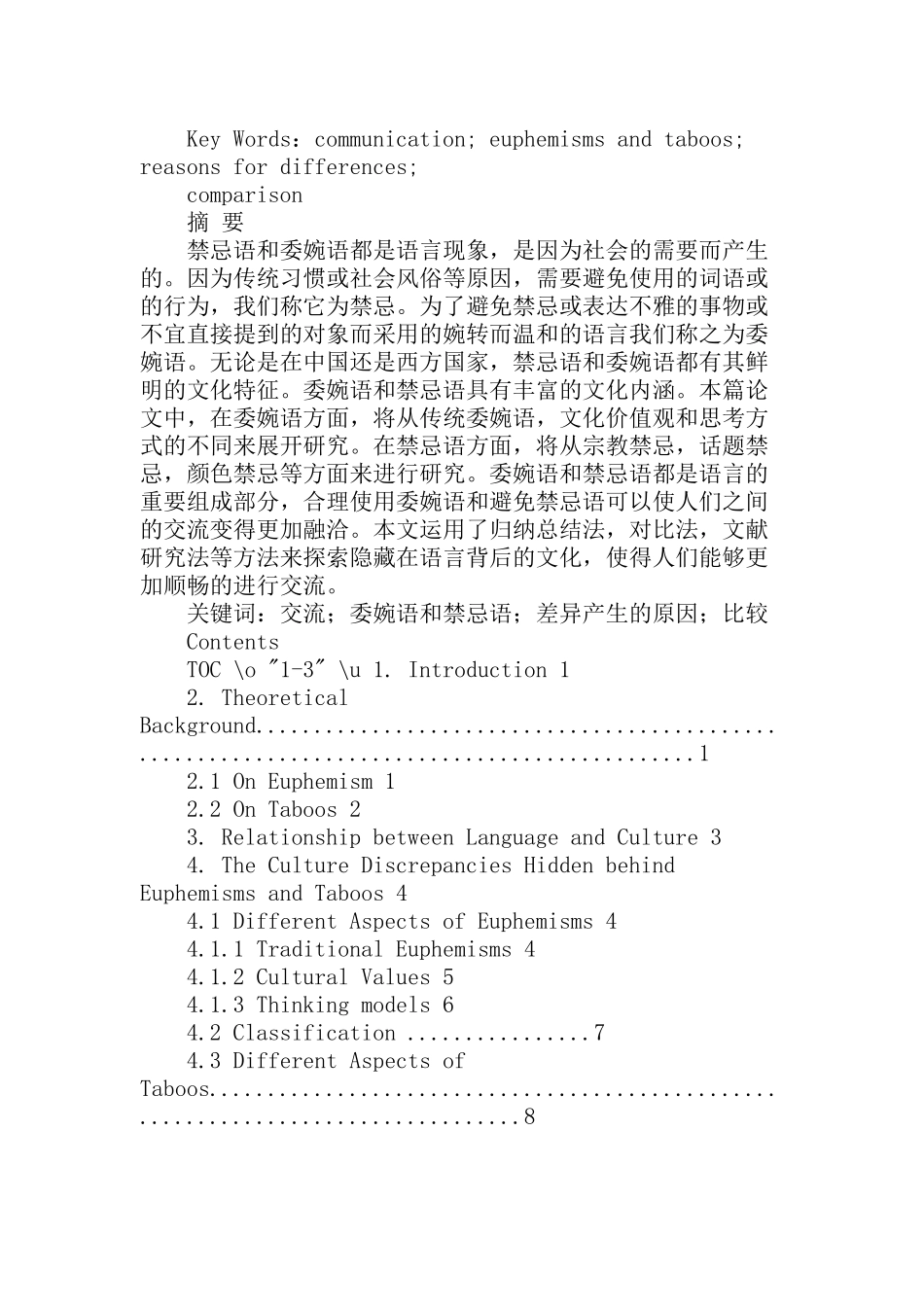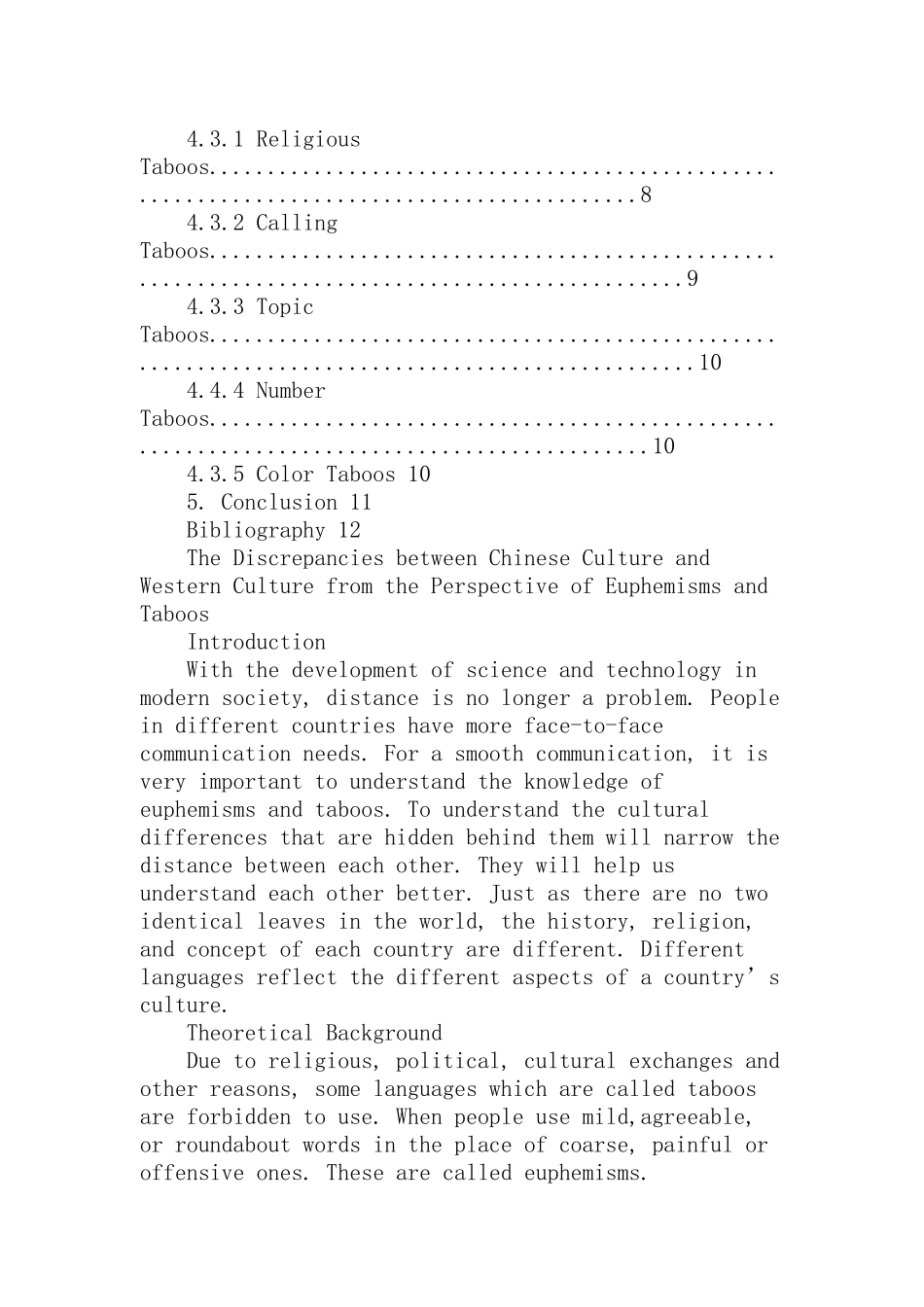AcknowledgementsI am indebted to our university for providing me with such a precious opportunity of writing this thesis to conclude my four years’ undergraduate education. In the course of writing, I have gained more knowledge and enlightenment than I expected.I would like to express my most sincere appreciation to my respected supervisor, Mrs. Gao Yanmei, an amiable and knowledgeable teacher, who patiently and painstakingly fulfilled the task of reading, critiquing, shaping and polishing all the preliminary drafts of this thesis.In addition, my thanks also go to my family as well as the classmates who have offered me help and suggestions.AbstractTaboos and euphemisms are language phenomena that arise from social needs. Taboos are the words that we should avoid using because of traditional habits or social customs. To avoid taboos or express indirectly, people choose to use the words which are mild and unobjectionable. These words are called euphemisms. Whether in China or western countries, taboos and euphemisms have their distinctive cultural characteristics. Euphemisms and taboos accumulate richly cultural connotations. In this paper, on euphemism, researches carry out from the traditional euphemism, cultural values and different ways of thinking. Taboos are studied from the religious taboos, topic taboos, color taboos and other aspects. Euphemisms and taboos are important parts of language. Rational using of euphemisms and avoiding taboos can make the communication between people become more harmonious. This paper uses the methods of summarization, comparison, literature research and so on to explore the culture hidden behind words so that people can communicate with each other more smoothly.Key Words:com...


